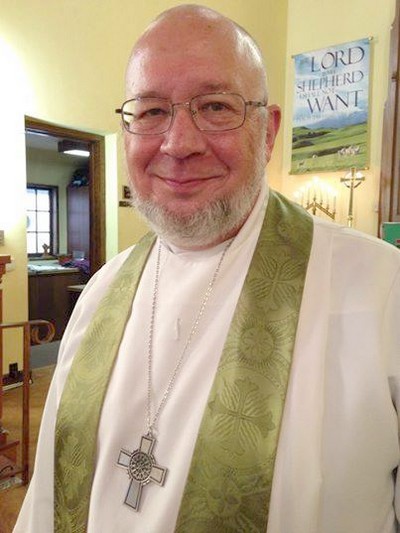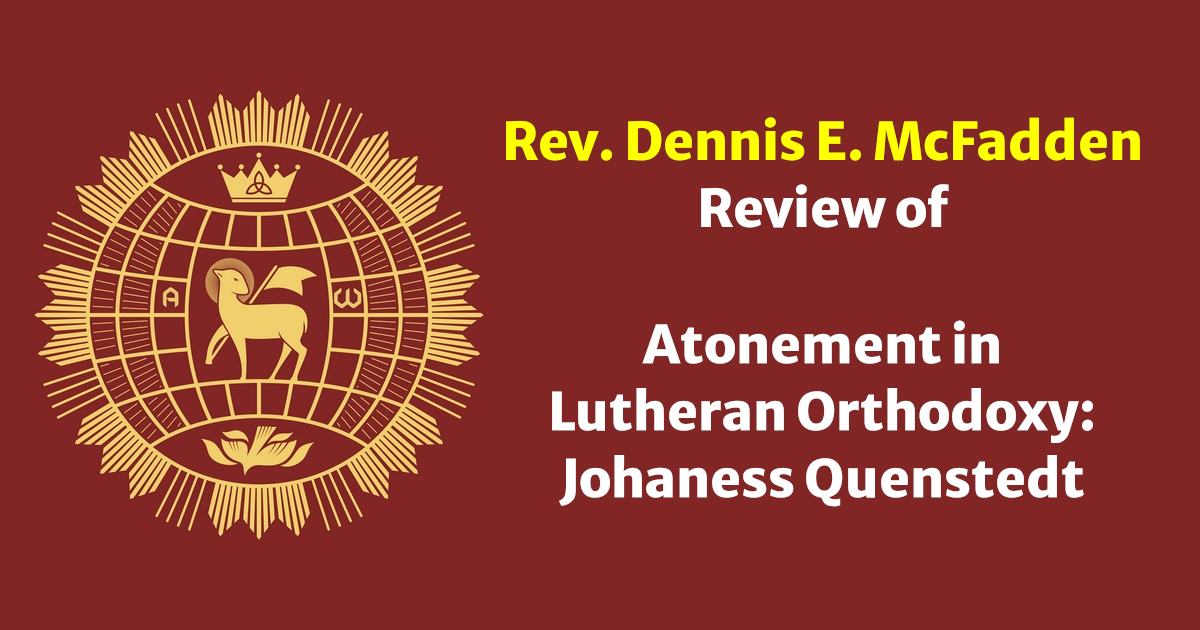Copyright (c) 2023 Dennis E. McFadden. Used by Permission.
Rev. McFadden is a Pastor ordained in the Lutheran Church – Missouri Synod.
The meaning of “atonement” has been a topic of much debate in recent decades. A large number of theologians have dismissed the Reformation view as misguided and even barbaric. This book adds the voice of a Lutheran luminary from the period following the Reformation, Johannes Quenstedt, offering a contradictory view. The slender volume includes relevant sections from his greatest theological work, “Systema,” coupled with a commentary on it by the late Robert Preus, a forward by Burnell F. Eckardt, Jr. and a biographical essay by Jack D. Kilcrease. Thanks to publisher T. R. Halvorson, this material from Quenstedt (Thesis XIV to XLIV on the Priestly Office of Christ) has been made available to English readers for the first time. [Editor’s Note: The translation was commissioned to be done by the prolific and esteemed Matthew Carver.]

Quenstedt was arguably the last of the three greatest Lutheran theologians in the 150 years following the age of Luther. Robert Preus once noted that “There is no question that after the “Loci Theologici” of Chemnitz and Gerhard (who was his uncle) the “Systema” of Quenstedt ranks as the greatest dogmatics book ever written by a Lutheran . . . One might say that Quenstedt’s “Systema” killed systematic theology in the period of Lutheran orthodoxy as Michelangelo killed Renaissance art by the unexcelled quality of his work. Quenstedt’s lifework is so big, so complete, so concise and systematic, and so excellent that no later Lutheran ever came close to equaling it.”
Quenstedt’s sections consist of an exegesis of practically every verse in the Bible related to the vicarious substitution of Jesus Christ for us, arranged under an outline structure. With the skills of an exegete and a theologian, he explains the importance of vicarious substitution: “If God were able to condone man’s crime without satisfaction and His infinite righteousness could be preserved, the great cost of the only Son would not have been needed.” A fair summary of what Quenstedt concluded from his study comes in Thesis XIV.
The priestly office is the function of Christ the Theanthropos [God-Man] whereby He, for our sake, in our place, and for our good, according to the eternal counsel of God and the promise made by Himself subjected Himself in time to the Law of God, and by the perfect fulfillment and suffering of all punishment rendered the obedience entirely satisfying to divine righteousness, and delivered us from the wrath of God, the curse of the Law, and from sin and all evils, which obedience He shows even now to God the Father and by His own intercession prays for every good needful to us. (Thesis XIV).




